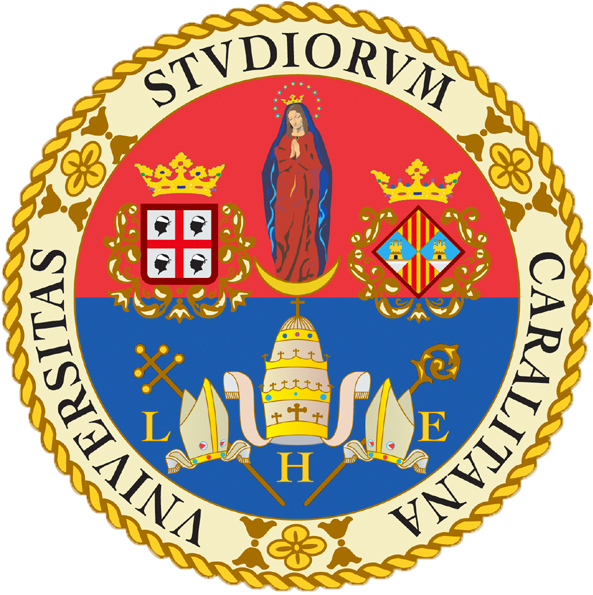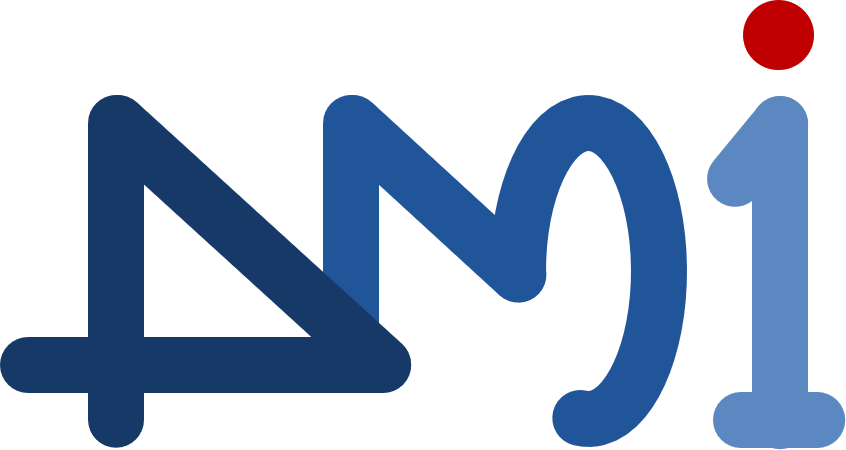About The Event
The summer school on "Recend Advancements in Computational and Learning Methods for Inverse Problems" will be held at the Mathematics and Computer
Science Department of the University of Cagliari (Sardinia, Italy) on
July 11-15, 2022.
The summer school consist of one longer course that will provide background in
Numerical Linear Algebra and give an overview of classical and new solution
methods for both small and large-scale inverse ill-posed problems. In addition,
there will be 5 short courses on specific topics.
An Overview of Ill-Posed Inverse Problems
Many questions in Applied Mathematics, Science, and Engineering lead to Inverse Problems. These problems often arise when one is interested in determining the cause of an observed effect in- inverse helioseismology, where one seeks to determine the structure of the sun by measurements from earth or space,
- medical imaging, e.g., electrocardiographic imaging, computerized tomography,
- image restoration, where one is interested in determining an unavailable exact image from an available contaminated version,
- adaptive optics, where one is interested in determining the shape of mirrors that provide high resolution of a contaminated image.
The difficulties in solving ill-posed problems can be reduced by replacing the given problem by a nearby problem, whose solution is less sensitive to errors in the data. This replacement is referred to as regularization. The most commonly used regularization technique is due to Tikhonov. It replaces the original problem by a penalized least squares problem. Many other regularization techniques have been developed. All regularization techniques require the determination of a regularization parameter that determines how much the original problem is modified. It is important to choose both a suitable regularization method and an appropriate value of the regularization parameter to obtain accurate solutions of inverse ill-posed problems.
Techniques of Numerical Linear Algebra can be used to investigate the problems to be solved and to devise regularization methods. For instance, the singular value decomposition (SVD) is a useful tool from linear algebra for the investigation and regularization of small to medium-sized inverse ill-posed problems. However, the SVD cannot be applied to large-scale problems due to its high computational cost. Instead Krylov subspace iterative methods can be used to reduce the given large problem to smaller size. The latter can then be solved with the aid of the SVD.
Purpose of the Summer School
The last 20 years has seen significant development in methods for analyzing and solving inverse ill-posed problems. Many of these methods can be expressed with the tools of Numerical Linear Algebra. The course will provide an overview of many of established and new techniques for the analysis and solution of inverse ill-posed problems. The theory presented is illustrated with computed examples. Participants in the summer school will be assigned homework that expands the theory that is presented in lectures, and programming exercises that will show how the methods discussed perform.Poster session
Participants who like to present their research activities can present a poster during the poster session. Each poster will be introduced with a short presentation of 5 minutes.Application
The number of participants in the summer school is limited. Applications can be submitted to the e-mail address clip22@bugs.unica.it before May 31, 2022, and should include an application letter by the applicant, a CV of the applicant, and a letter of recommendation describing the background of the applicant. The letter should include a title and an abstract if the applicant intends to present a poster. Applicants will be notified of acceptance by June 5, 2022.
Participation in the summer school is free.
Event Lecturers
Here are our lecturers

Lothar Reichel
Kent State University, Kent (OH), USA

Marco Donatelli
Università dell' Insubria, Como, Italy

Marco Prato
Università di Modena e Reggio Emilia, Italy

Mirjeta Pasha
Arizona State University, Tempe (AZ), USA

Felipe Uribe
Technical University of Denmark, Denmark
Event Schedule
Here is our event schedule
Break
Lunch break
Break
Lunch break
Break
Lunch break
Poster Session
Break

Computationally Efficient Methods for Large-Scale Inverse Problems: From Learning to Sparsity and Edge-Preserving Mirjeta Pasha
Lunch break

Computationally Efficient Methods for Large-Scale Inverse Problems: From Learning to Sparsity and Edge-Preserving Mirjeta Pasha
Participants
- Aleotti Stefano Dip. Scienza e Alta Tecnologia, Università degli Studi dell'Insubria, Italia
- Berra Silvia Dip. di Matematica, Università di Genova, Italia Abstract
- Cavassi Roberto Dept. of Information Engineering, Computer Science and Mathematics, University of L’Aquila, Italia Abstract
- Crabu Elisa Dip. di Matematica e Informatica, Università degli Studi di Cagliari, Italia
- El Byad Hamza Dip. di Matematica e Informatica, Università degli Studi di Cagliari, Italia Abstract
- Loi Valerio Dip. di Matematica e Informatica, Università degli Studi di Cagliari, Italia Abstract
- Manca Mara Dip. di Matematica e Informatica, Università degli Studi di Cagliari, Italia Abstract
- Mascia Luca Corso di Laurea in Ingegneria Biomedica, Università degli Studi di Cagliari, Italia
- Panzeri Lorenzo Dip. di Matematica, Politecnico di Milano, Italia
- Pes Federica Dip. di Matematica e Informatica, Università degli Studi di Cagliari, Italia Abstract
- Piras Nicola Dip. di Matematica e Informatica, Università degli Studi di Cagliari, Italia Abstract
- Ratto Marco Dip. di Matematica e Informatica, Università degli Studi di Cagliari, Italia
- Renzi Francesca Dip. di Scienze Chirurgiche, Odontostomatologiche e Materno-Infantili, Università di Verona, Italia
- Scipione Margherita Dept. of Physics, Information Technology and Mathematics, University of Modena and Reggio Emilia, Italia
- Sudheer Niranjana Norwegian University of Life Sciences, Norway
- Yousefi Mahsa Dept. of Mathematics and Geosciences (DMG) University of Trieste, Italy
Event Venue
Event venue location info
Mathematics and Computer Science Department
Cagliari, Italy
Hotels
Sardinia is a tourist destination, especially during summer. Therefore, participants should make flight and hotel reservations as soon as possible, after acceptance.
Cheap accommodation for the school participants will be available at Hostel Marina.
Detailed information about rooms and prices:
- SINGLE ROOM: euro 45,00 per night;
- DOUBLE ROOM: euro 70,00 per night;
- PRIVATE ROOM UP TO 4 BEDS: euro 27,00 per person per night;
- DORMITORY (up to 6 beds, female or male): euro 25,00 per person per night.
If you prefer another accomodation, you can use Google Maps to obtain a list of hotels and a list of Bed and Breakfast.
Starting from July 1, a City tax of euro 1.5 per day will be due.
Cagliari is a small town, you can move across the centre walking. In case your accomodation is far from the school venue, CTM provides bus connections.



